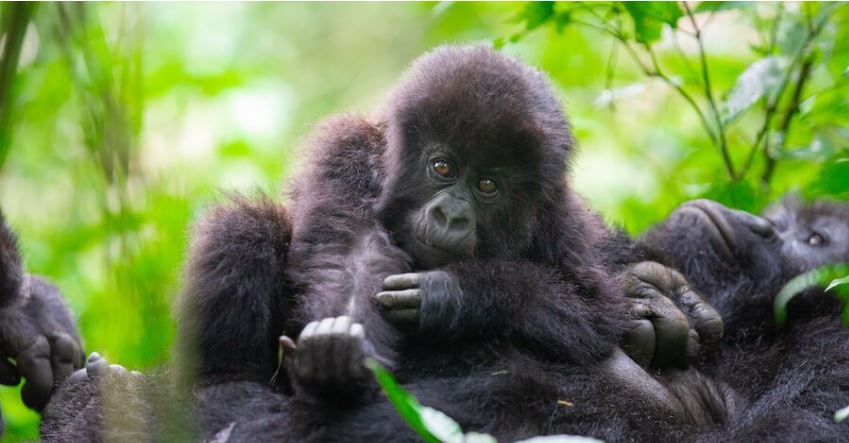Rwanda’s iconic Kwita Izina Gorilla Naming Ceremony, a globally recognized event in the world of conservation, was poised to celebrate its 20th anniversary this year. The event, which brings together conservationists, international celebrities, and dignitaries from around the world, was set to name 22 newborn gorillas, marking a significant milestone in its rich history. However, as excitement was building, health concerns surrounding the Marburg virus led to the sudden and necessary suspension of the ceremony.
For nearly two decades, Kwita Izina has been more than just a naming event; it has become a symbol of Rwanda’s commitment to conservation and a cornerstone of its tourism industry. Modeled after a centuries-old tradition where Rwandans name their children in the presence of family and friends, this modern adaptation celebrates the country’s beloved mountain gorillas, which have become global icons in wildlife conservation.
A Tradition Rooted in Conservation
Long before the official launch of Kwita Izina in 2005, the naming of baby gorillas was an intimate practice among park rangers and researchers. This allowed them to monitor the growth and development of Rwanda’s mountain gorilla population, a critically endangered species. Over the past 19 years, the ceremony has evolved into a world-renowned event, attracting hundreds of visitors and notable personalities to the picturesque setting of Kinigi, in Musanze District, near the gorilla habitats of Volcanoes National Park. With the towering peaks of Karisimbi, Sabyinyo, and Bisoke providing a majestic backdrop, the ceremony has named 395 baby gorillas since its inception.
The growth of Kwita Izina from a local affair to a globally celebrated event has had a profound impact on Rwanda’s tourism sector. It has positioned the country as a leading destination for high-end eco-tourism, with visitors not only eager to witness the ceremony but also to explore the country’s natural wonders and unique wildlife experiences.
Global Participation and High-Profile Namers
One of the hallmarks of Kwita Izina is its roster of distinguished gorilla namers, who are carefully selected from across the globe. These individuals, who have contributed to conservation, social impact, and international goodwill, play a vital role in promoting Rwanda’s image on the world stage. Among the most notable participants in recent years was King Charles III, who, despite his busy schedule at the CHOGM summit in Rwanda, virtually participated in the 2022 ceremony. His involvement followed in the footsteps of Prince Harry, who has been a long-standing advocate for wildlife conservation through his work with African Parks.
Other high-profile participants include football legends like Gilberto Silva, Juan Pablo Sorin, and Didier Drogba, as well as international celebrities such as actor Kevin Hart, who named his gorilla virtually in 2023. The diverse array of namers reflects Rwanda’s growing influence as a conservation leader, attracting figures from the entertainment, sports, and diplomatic worlds.
The participation of such high-profile individuals not only boosts Rwanda’s tourism industry but also highlights the country’s commitment to sustainable conservation practices. This commitment was further underscored in 2022, when African Parks announced ambitious plans to introduce Western Lowland Gorillas, elephants, and buffaloes to Nyungwe National Park, a move that would further expand Rwanda’s wildlife conservation efforts.
A Conservation Model Built on Community Engagement
At the heart of Rwanda’s conservation success is a deep commitment to community involvement. Conservation efforts, particularly in the area of gorilla protection, cannot thrive without the active participation of local communities. Recognizing this, the government has implemented a tourism revenue-sharing initiative, where a portion of the revenue generated from tourism is reinvested into the communities surrounding national parks.
Since the program’s inception in 2005, it has grown significantly, with the revenue share increasing from 5% to 10% in 2023. To date, over Rwf7.9 billion has been spent on supporting 880 community-based projects. These projects, ranging from modern artisanal markets to vocational training centers, are designed to provide sustainable livelihoods for local residents, many of whom were once engaged in poaching or other illegal activities.
One notable example is the recently launched market in the Cyarubare Cell, located near Akagera National Park. Funded through tourism revenues, this modern market has created opportunities for residents to engage in income-generating activities such as carpentry, tailoring, and welding, providing a vital boost to the local economy.
A Vision for the Future
Rwanda’s vision for the future of conservation is ambitious yet grounded in a deep respect for nature and the communities that surround it. As the country looks ahead to the possibility of expanding its gorilla population to Nyungwe National Park, it is clear that these efforts will not only enhance Rwanda’s tourism offerings but also contribute to the global fight to preserve endangered species.
Protais Niyigaba, the manager of Nyungwe National Park, emphasized the importance of such initiatives in securing the future of Rwanda’s wildlife. “The introduction of gorillas to Nyungwe could take longer than expected, but we are committed to ensuring that these endangered animals have the best possible environment to thrive,” Niyigaba said.
Despite the temporary suspension of this year’s Kwita Izina, the event’s legacy continues to inspire conservationists and nature lovers alike. Rwanda remains at the forefront of global efforts to protect endangered species, and with the unwavering support of local communities, the future of its mountain gorillas looks brighter than ever. Kwita Izina will undoubtedly return with even greater fanfare, continuing its role as a symbol of hope, resilience, and Rwanda’s dedication to preserving its natural heritage.

